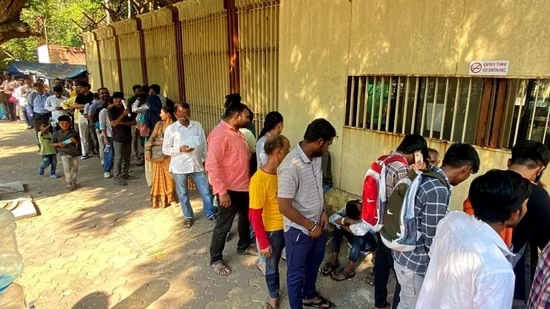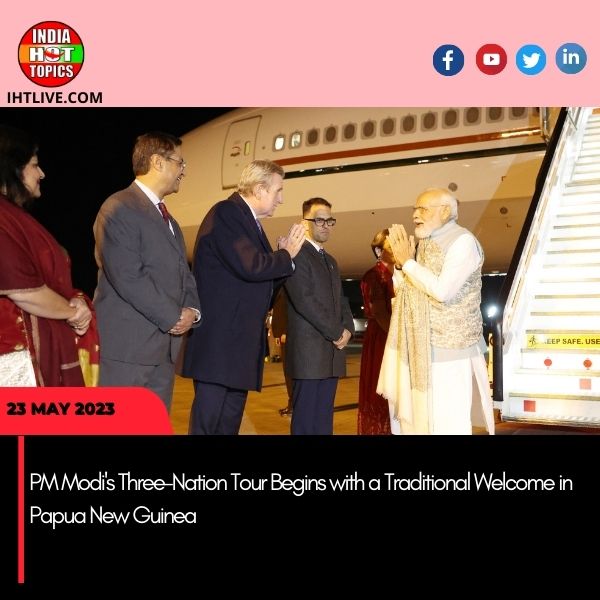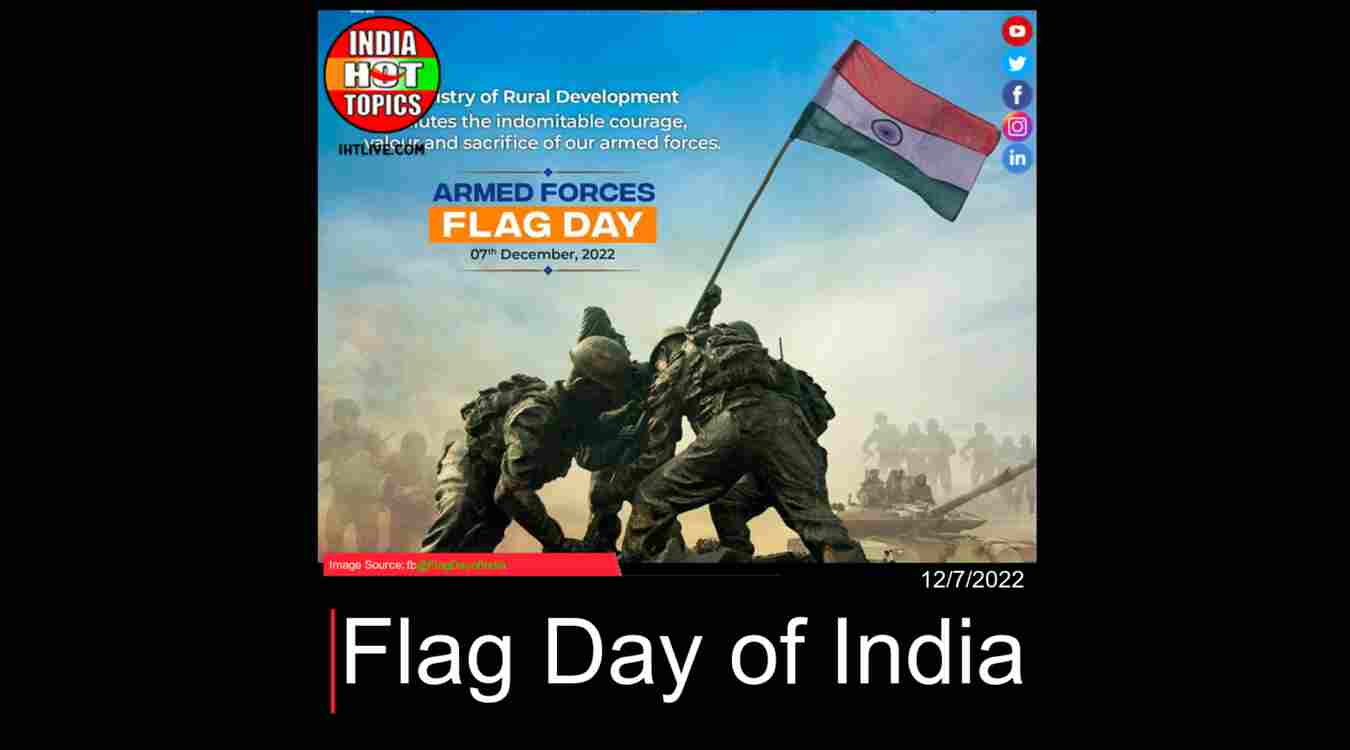India
Rohit Pawar states that “Lok Sabha elections could be held in December because” amid the NCP crisis.
Rohit Pawar’s Insights on Possible December Lok Sabha Elections Amidst NCP Crisis
The political landscape in India is always dynamic, and recent statements made by Rohit Pawar, a prominent leader of the Nationalist Congress Party (NCP), have sparked speculation about the timing of the Lok Sabha elections. Pawar’s suggestion that the elections could take place in December has drawn significant attention, especially against the backdrop of the ongoing NCP crisis. In this blog post, we delve into the details surrounding Pawar’s statement and explore the potential implications of holding Lok Sabha elections during this period of political uncertainty.
The Nationalist Congress Party, a key political force in Maharashtra, is currently facing internal challenges and a period of turbulence. The party, which has been instrumental in shaping the state’s politics, is navigating internal divisions and power struggles. These issues have given rise to speculation about the party’s future and the potential impact on the larger political landscape.
In a recent interview, Rohit Pawar, a young and influential leader within the NCP, expressed his view that the Lok Sabha elections could be held in December. While his statement is not an official announcement, it has ignited discussions and debate among political analysts and observers. Pawar’s suggestion has been interpreted as a reflection of the current political climate and the need to address the NCP crisis in a timely manner.
If the Lok Sabha elections were to be held in December, it would mark a significant departure from the traditional election cycle. The usual practice is to hold general elections every five years, with the last Lok Sabha elections taking place in 2019. Advancing the elections to December would have implications for both the political parties and the electorate.
- Political Parties: The NCP crisis could potentially influence the decision to hold early elections. By doing so, the party could aim to resolve internal conflicts, project a united front, and regain voter confidence. Additionally, other political parties would need to strategize and adjust their campaign plans accordingly.
- Electorate: Holding Lok Sabha elections in December would require voters to engage in the electoral process during the winter season, which may have implications for voter turnout. Parties would need to work harder to mobilize voters, particularly given the festive season and potential weather challenges.
The NCP crisis and the potential December elections raise questions about political stability and effective governance. While elections are an integral part of a democratic system, the timing and circumstances surrounding them can significantly impact the overall functioning of the government. It is crucial for all political stakeholders to prioritize stability and ensure a smooth transition of power, should it occur.
Rohit Pawar’s statement about the possibility of holding Lok Sabha elections in December amidst the NCP crisis has triggered discussions and speculations within the political sphere. The decision to advance the elections, if taken, would have far-reaching implications for political parties and the electorate. It remains to be seen how the NCP crisis unfolds and whether the suggested timing of the elections becomes a reality. As political dynamics continue to evolve, it is crucial for all stakeholders to prioritize stability, effective governance, and the democratic process.
Group Media Publications
General News Platform – https://ihtlive.com/
Entertainment News Platforms – anyflix.in
Construction Infrastructure and Mining News Platform – https://cimreviews.com/
Podcast Platforms – https://anyfm.in
India
‘India hosts G20, Pakistan hosts T20’: Sena (UBT) MP Priyanka Chaturvedi’s ‘top terrorists’ swipe at Islamabad
.jpg)
Shiv Sena (UBT) MP Priyanka Chaturvedi recently made a pointed remark contrasting India’s global leadership with Pakistan’s alleged support for terrorism. Speaking to the Indian diaspora in London, she stated, “While we host the G20, they host the T20—the top 20 terrorists of the world,” implying that Pakistan provides shelter to some of the most wanted terrorists globally.
She further criticized Pakistan’s duplicity, saying it “shakes hands with you and then bites you on your back,” referencing the discovery of Osama bin Laden in Pakistan despite its alliance with the U.S.
Chaturvedi also drew a parallel between India’s pursuit of Free Trade Agreements and Pakistan’s alleged “Free Terrorism Arrangement,” highlighting the stark differences in their international engagements. Her comments were part of a broader effort by an Indian parliamentary delegation to expose Pakistan’s purported state-sponsored terrorism on the global stage.
This rhetoric aligns with previous statements by Indian leaders. For instance, during the G20 Summit in 2017, Prime Minister Narendra Modi emphasized that “some nations are using terrorism for achieving political goals,” equating Pakistan-based groups like Lashkar-e-Taiba and Jaish-e-Mohammed with global terror organizations such as ISIS and al-Qaeda.
India’s consistent stance has been to urge the international community to isolate and sanction nations that support terrorism, advocating for a unified global response to combat the menace effectively.
In a pointed and politically charged remark, Shiv Sena (UBT) MP Priyanka Chaturvedi recently stirred debate by contrasting India’s global leadership with Pakistan’s alleged harboring of terrorism. Speaking to members of the Indian diaspora in London, Chaturvedi quipped, “India hosts the G20, Pakistan hosts the T20—the top 20 terrorists of the world.” While wrapped in wit, the statement reflects a broader and long-standing diplomatic contention between India and Pakistan over the issue of cross-border terrorism.
India, under Prime Minister Narendra Modi’s leadership, has increasingly positioned itself as a global economic and strategic player. Its hosting of the G20 summit in 2023 was seen as a landmark moment, not only diplomatically but also symbolically. India showcased itself as the voice of the Global South, a nation committed to sustainable development, digital innovation, and multilateral cooperation.
In stark contrast, Chaturvedi’s barb underscores India’s frustration over Pakistan’s alleged inaction against terrorist networks operating within its borders—a concern that has been echoed in international forums.
The “T20” remark, while humorous in form, is a critique of the perception that Pakistan continues to serve as a safe haven for individuals and organizations involved in terrorism. For decades, New Delhi has maintained that Pakistan-based groups like Lashkar-e-Taiba, Jaish-e-Mohammed, and others have orchestrated attacks on Indian soil, including the 26/11 Mumbai attacks and the 2019 Pulwama bombing. Chaturvedi’s statement aligns with this narrative, essentially accusing Pakistan of continuing to shelter elements that threaten regional stability.
The international community has taken note of these allegations. Multiple global bodies, including the Financial Action Task Force (FATF), have placed Pakistan under scrutiny. Although Pakistan was removed from the FATF’s “grey list” in 2022 after making certain legislative and financial reforms, many believe that the underlying infrastructure of extremism still finds space in parts of the country. Indian leaders have consistently pointed to this as a security threat not just for India, but for the wider world.
What adds to the irony, and perhaps the bite, of Chaturvedi’s comment is the use of the “T20” term—normally associated with a popular format of international cricket.
Cricket is a shared passion between India and Pakistan and often serves as a tool of diplomacy and people-to-people contact. Yet here, the term is used to convey an ominous message, repurposed to signify terrorism rather than sport. It reflects how deeply entrenched the issue of terrorism has become in bilateral relations between the two neighbors, to the point that even cultural metaphors are drawn into the fray.
Her statement also speaks to the growing confidence of India’s political class in taking a firm, often vocal, stand on international platforms. Gone are the days when Indian leaders shied away from publicly naming Pakistan in global settings. Today, Indian representatives, whether at the United Nations, G20, or bilateral meetings, are direct in their language. Chaturvedi’s speech to the Indian diaspora fits into this larger strategic posture: vocal, assertive, and unapologetic.
Critics may argue that such rhetoric contributes little to actual diplomatic resolution and could exacerbate tensions. But supporters see it as a necessary counter-narrative to what they view as Pakistan’s continued denial of its role in sponsoring or turning a blind eye to terrorism. For the Indian diaspora—particularly in Western countries—such remarks often serve to rally support, both emotionally and politically, for India’s position on security and foreign policy matters.
Furthermore, Chaturvedi’s allusion to Osama bin Laden’s presence in Abbottabad, Pakistan, is a reminder of past controversies. The fact that the world’s most wanted terrorist was found living in a compound near a major military academy in Pakistan shocked global observers. That episode has become symbolic of the suspicions many hold regarding Pakistan’s internal contradictions—fighting terrorism in some quarters while allegedly enabling it in others.
Chaturvedi didn’t stop at the T20 analogy. She also drew a comparison between India’s pursuit of Free Trade Agreements (FTAs) and what she termed Pakistan’s “Free Terrorism Arrangement.” It’s a biting turn of phrase meant to emphasize the contrasting paths the two countries have taken on the global stage. While India negotiates trade deals and pushes economic growth, the insinuation is that Pakistan has allowed itself to become entangled in a network of extremist patronage and international suspicion.
These rhetorical flourishes are not made in a vacuum. They reflect a domestic political climate in India where national security remains a top priority. With general elections approaching, and with nationalistic sentiment often influencing electoral behavior, such statements serve both foreign and domestic policy objectives. They reinforce the narrative of a strong India standing up to global threats, and they appeal to voters who prioritize national integrity and security.
However, the use of such language also raises questions about diplomatic tone. While sharp rhetoric can capture headlines and galvanize public opinion, it may limit the space for back-channel diplomacy and peaceful negotiation. India and Pakistan, after all, remain nuclear-armed neighbors with a complex history. They share borders, cultural ties, and economic potential that are frequently overshadowed by their political disagreements.
Chaturvedi’s comments should also be viewed in light of increasing efforts by India to shape global perceptions. Indian diplomacy is now intertwined with strategic communication, where narratives are as important as negotiations. Terms like “Terroristan” and “T20 terrorists” are part of a larger toolkit of persuasive language aimed at influencing how the world sees South Asia’s security challenges.
It is also worth noting that such messaging often resonates with international audiences who have themselves been affected by terrorism. Countries in the West that have faced attacks on their soil may find a natural ally in India’s tough stance. Thus, Indian leaders—parliamentarians, diplomats, and ministers alike—are increasingly comfortable invoking sharp, memorable phrases to drive home their point.
In the end, Chaturvedi’s “G20 vs T20” statement is emblematic of a broader geopolitical reality. It highlights the competing narratives of two neighboring nations with vastly different global aspirations. India seeks to be a rule-maker in the global order, advocating for cooperation, innovation, and economic integration. Pakistan, on the other hand, finds itself battling persistent accusations of terrorism support, struggling to reshape its global image despite efforts at reform.
Whether such rhetoric will lead to constructive change remains to be seen. But one thing is clear: the verbal sparring between India and Pakistan is no longer limited to official statements. It now occupies global stages, diaspora gatherings, and international media, shaping public perception in ways that formal diplomacy often cannot. Chaturvedi’s comments are just one example of how political messaging, laced with satire and criticism, has become a powerful tool in the evolving India-Pakistan relationship.
- Group Media Publication
- Construction, Infrastructure and Mining
- General News Platforms – IHTLive.com
- Entertainment News Platforms – https://anyflix.in/
India
Shreyas Iyer plays an all-time great knock, PBKS set up final against RCB to ensure a new IPL champion

In a pulsating, high-octane clash that will be etched in IPL folklore for years to come, Shreyas Iyer produced an innings of a lifetime, a masterclass under pressure that not only salvaged his side from the brink but also powered them into their first-ever Indian Premier League final, where they will now face Royal Challengers Bangalore in a historic showdown that guarantees a brand-new champion. The Eden Gardens roared in collective disbelief and admiration as Iyer, the steely-eyed right-hander, unleashed a knock that defied the odds, silenced doubters, and revived his team’s fortunes in a match that looked lost at several junctures.
Chasing a daunting total set by Rajasthan Royals in Qualifier 2, the Punjab Kings were reeling at 45 for 4 when Iyer walked in, amid a flurry of wickets and a growing sense of inevitability. But the Delhi-born batter had other ideas. Combining surgical precision with fearless aggression, Iyer stitched together a majestic 112* off just 61 balls, blending classical strokeplay with inventive shot-making. His ability to pierce the gaps, manipulate field placements, and accelerate with grace underlined his evolution as a big-match player.
The pivotal moment came in the 16th over, when Iyer launched into seasoned pacer Trent Boult with back-to-back sixes and a scything cover drive that shifted the momentum irreversibly in Punjab’s favor. From there, the equation melted down under the sheer weight of Iyer’s calm, calculated assault. Supported briefly by Jitesh Sharma and a spirited cameo from Liam Livingstone, the innings was undeniably Iyer’s canvas, painted with strokes of resolve, maturity, and brilliance.
The PBKS dugout erupted as he sealed the victory with a towering six over long-on, punching the air as teammates swarmed the field, finally breaking their playoff jinx and marching into the final with renewed belief. It was a tale of redemption for Iyer too, who had faced criticism earlier in the season for inconsistency but timed his resurgence perfectly, rising when it mattered most. Meanwhile, Royal Challengers Bangalore, having dispatched tournament favorites Kolkata Knight Riders in Qualifier 1, wait eagerly at the other end of the draw for what will be their fourth final — and like PBKS, a potential maiden title.
With both teams historically known more for their heartbreaks than their hardware, the upcoming final is more than just a match; it’s a promise of new beginnings, a shot at legacy.
Fans across the country are bracing for a titanic clash of two squads brimming with talent and desperation in equal measure. For PBKS, the triumph in the semifinal is emblematic of their season — erratic yet exhilarating, chaotic but courageous.
Led ably by Sam Curran, whose tactical acumen and all-round contributions have been central to the team’s resurgence, Punjab have found late-season form that makes them a legitimate threat. Add to that the form of Jonny Bairstow, the X-factor of Livingstone, and a quietly effective bowling core anchored by Arshdeep Singh and Rahul Chahar, and PBKS look like a side peaking at just the right time.
RCB, on the other hand, are riding on a wave of Virat Kohli’s vintage brilliance, Faf du Plessis’s calm leadership, and a bowling attack spearheaded by Mohammed Siraj and Karn Sharma that has outperformed expectations. The final promises a showdown between two explosive batting line-ups, smart captains, and passionate fanbases who have waited for this moment for over a decade.
But on this night, it was all about Shreyas Iyer — his timing, temperament, and tenacity. The innings wasn’t just about boundaries and numbers; it was about soaking pressure, rewriting narratives, and showing the cricketing world the value of composure in chaos.
As fireworks lit up the Kolkata sky and the crowd chanted his name, Iyer stood with his bat raised, soaking in the adulation, knowing he had just played one of the greatest knocks in IPL knockout history. In a tournament that has seen legends rise and fall, Shreyas Iyer’s heroics will now be remembered as a defining act, the very heartbeat of Punjab Kings’ dream run.
Now, with destiny within touching distance, PBKS and RCB are set to battle not just for a trophy, but for validation, for history, and for that elusive crown that has remained just out of reach for too long.
- Group Media Publication
- Construction, Infrastructure and Mining
- General News Platforms – IHTLive.com
- Entertainment News Platforms – https://anyflix.in/
India
US B1/B2 visa wait time exceeds 1 year for Indians: Report

Despite the US fully resuming visa operations, demand for tourist and business (B1/B2) visas continues to exceed available appointment slots, creating major backlogs across US consulates in India. Wait times in Hyderabad, Delhi, Mumbai, and Chennai range from 7.5 to 13.5 months, with Chennai facing the longest delay at 13.5 months. These prolonged delays are disrupting.
Travel for family functions, weddings, business events, and emergencies. Priority appointments remain limited, offering little relief even in urgent cases. Business professionals are among the worst hit. With no clear or predictable appointment system, applicants are left checking the portal repeatedly without success, making travel planning extremely difficult.
The US has announced visa restrictions on owners, executives, and senior officials of Indian travel agencies accused of knowingly facilitating illegal immigration to the United States. Mission India’s Consular Affairs and Diplomatic Security Service work daily across the embassy and consulates to identify and target those involved in illegal immigration, human.
Indian applicants seeking U.S. B1/B2 visas are encountering unprecedented delays, with wait times now extending beyond a year in several major cities. This situation is significantly impacting travel plans for business, tourism, and personal emergencies.
Extended Wait Times Across Major Cities
- Chennai: 13.5 months
- Delhi: 9 months
- Mumbai: 9.5 months
- Hyderabad: 7.5 months
These prolonged delays are causing applicants to miss critical events such as weddings, business conferences, and family gatherings. For instance, a homemaker planning to attend her nephew’s wedding in August found the earliest available appointment was in March of the following year, rendering her unable to attend.
Impact on Travelers
The extended wait times are affecting various categories of travelers.
- Business Travelers: Professionals are facing challenges in attending international conferences and meetings, leading to potential financial losses and missed opportunities.
- Tourists: Individuals planning leisure trips are forced to postpone or cancel their plans due to the unavailability of timely visa appointments.
- Family Emergencies: Applicants aiming to visit the U.S. for urgent family matters, such as childbirth or medical emergencies, are unable to secure appointments in time.
While students and emergency travelers are given limited priority slots, general applicants looking to visit family, attend events, or explore travel opportunities.
Underlying Causes
Despite the U.S. fully resuming visa operations, the demand for tourist and business (B1/B2) visas continues to far exceed available appointment The U.S. Department of State acknowledges these delays and advises applicants to plan their travel well in advance. They also suggest that applicants regularly check the appointment scheduling system for any earlier slots that may become available due to cancellations.
Recommendations for Applicants
- Early Planning: Initiate the visa application process as early as possible to accommodate potential delays.
- Regular Monitoring: Frequently check the appointment scheduling system for any earlier slots that may open up.
- Consider Interview Waivers: Applicants renewing their visas or meeting specific criteria may be eligible for interview waivers, potentially expediting the process.
- Stay Informed: Keep abreast of updates from the U.S. Embassy and Consulates regarding visa processing times and appointment availability.
The prolonged wait times for U.S. B1/B2 visas are causing significant disruptions for Indian travelers. Applicants are advised to plan ahead, explore all available options, and remain patient as they navigate the visa application process
Indian applicants for U.S. B1/B2 visas are facing unprecedented delays, with wait times now exceeding one year in major cities. Chennai reports the longest delay at 13.5 months, followed by Delhi and Mumbai at approximately 9 to 9.5 months, and Hyderabad at 7.5 months. These prolonged wait times are disrupting travel plans for family events, business engagements.
- Group Media Publication
- Construction, Infrastructure and Mining
- General News Platforms – IHTLive.com
- Entertainment News Platforms – https://anyflix.in/
-
Tech4 months ago
Best Zebronics Bluetooth speakers you can buy today for an unmatched audio experience
-

 India2 years ago
India2 years agoNew Season 8 The Walking Dead trailer flashes forward in time
-

 India2 years ago
India2 years agoThe afternoon briefing revealed that 97.26% of the ₹2000 notes were returned, and the Israeli Prime Minister committed to war goals.
-

 World12 months ago
World12 months agoMichigan splash pad attack: A couple was shot seven times in total while defending their two small daughters.
-

 India2 years ago
India2 years agoSrikanth Venkatachari is appointed as the new chief financial officer by Reliance Industries.
-

 India2 years ago
India2 years agoPM Modi’s Three-Nation Tour Begins with a Traditional Welcome in Papua New Guinea
-

 India8 years ago
India8 years agoThe 9 worst mistakes you can ever make at work
-

 Special 365 days2 years ago
Special 365 days2 years agoFlag Day of India








.jpg)
%20(1).jpg)